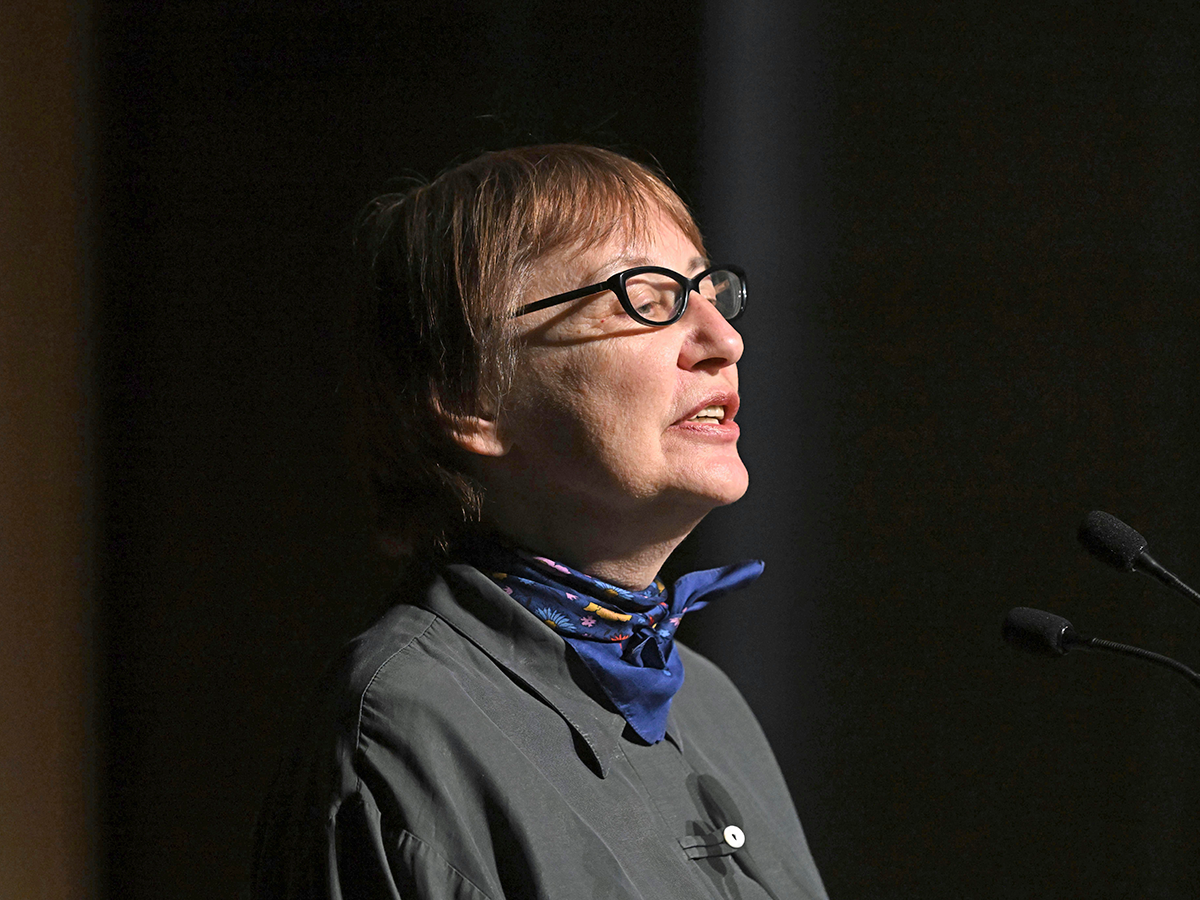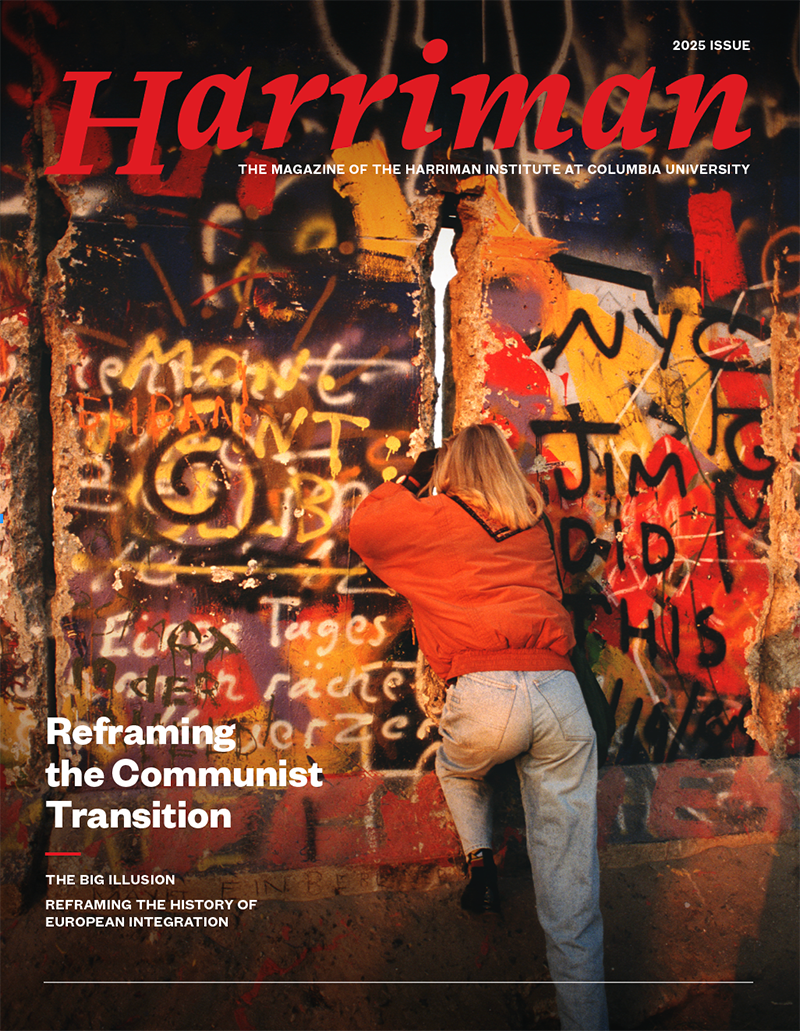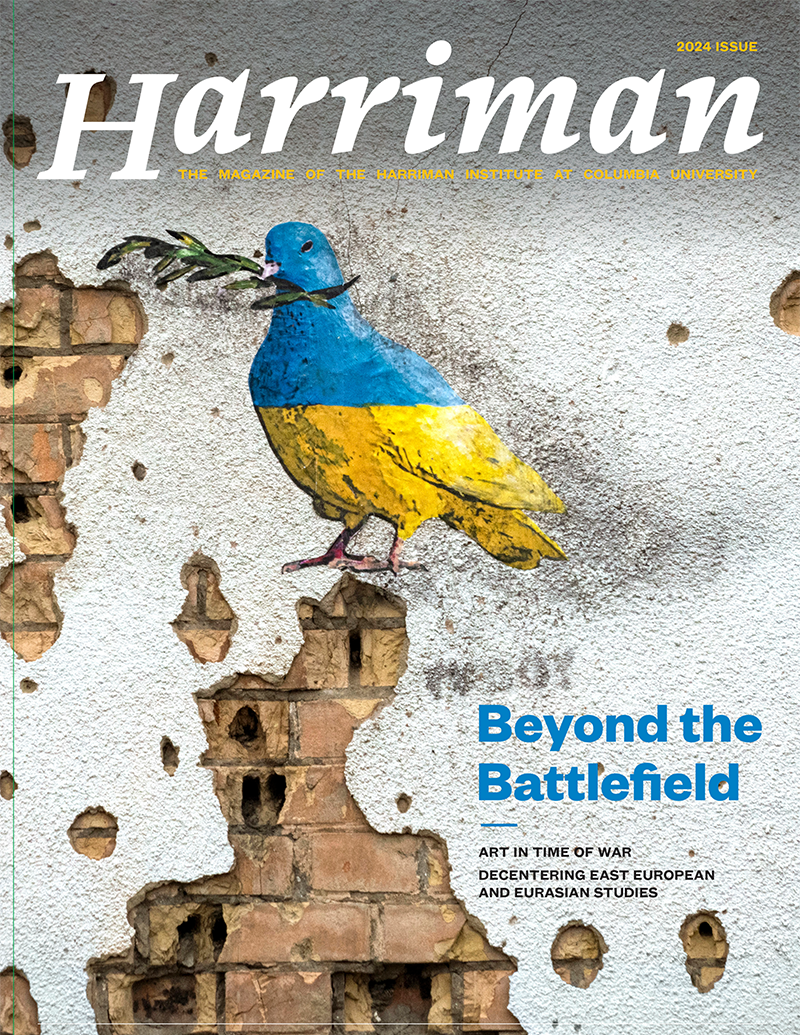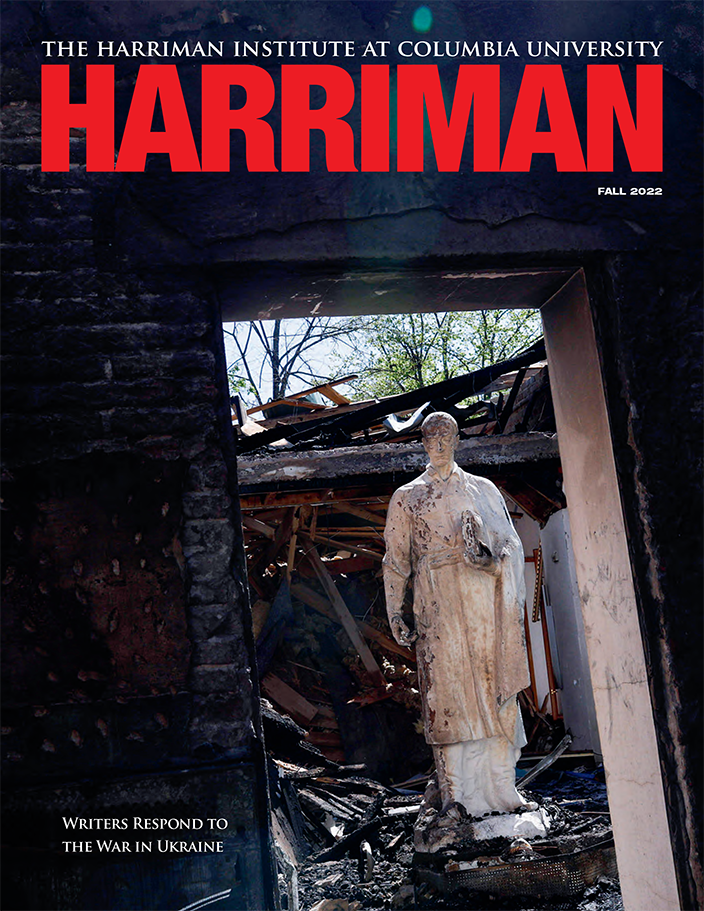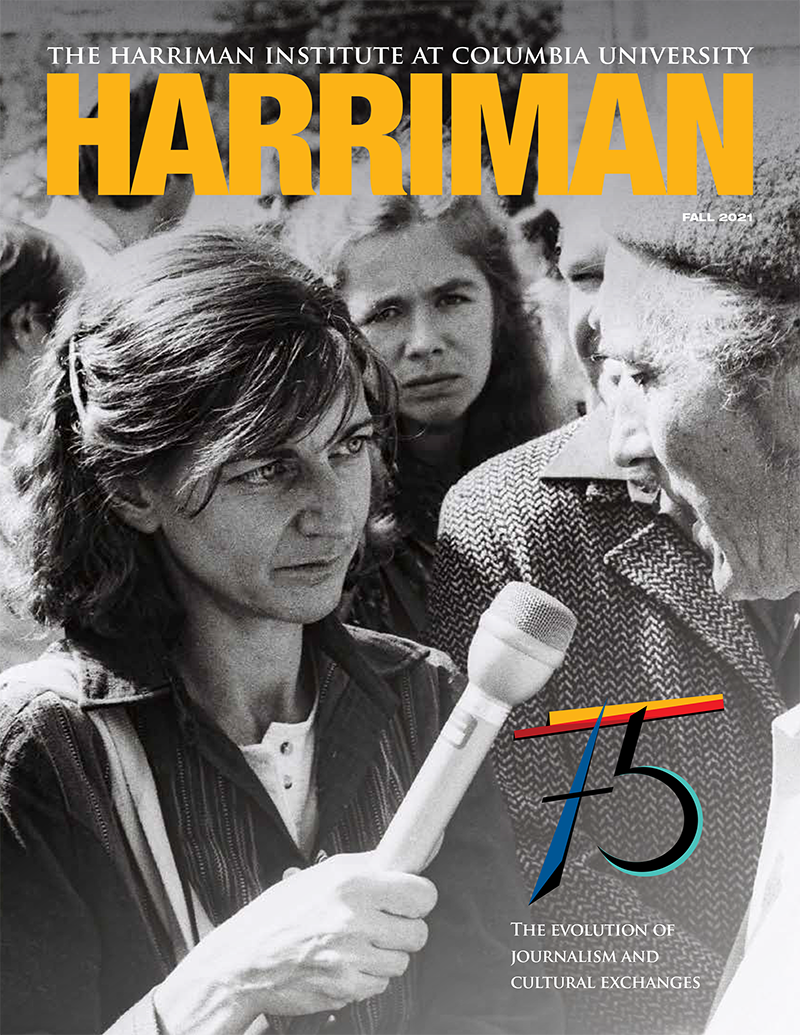From the translators: Natalka Bilotserkivets’s “Kateryna” is based on the poem and painting of the same name by the father of Ukrainian literature, Taras Shevchenko. The subject of both is the tragic fate of a Ukrainian serf girl seduced and then abandoned by a Russian officer. In Shevchenko’s “Kateryna,” the protagonist has her baby, tries to find the father, leaves the child along the road, and runs into the forest where she drowns herself in a pond. The boy is saved by a forester and eventually becomes a guide for a Ukrainian bard musician (kobzar), who takes him back to Ukraine.
Bilotserkivets suggested we tackle this never-before-translated poem from her 1989 collection November (Lystopad) because of the new resonance it has for the Ukrainian reading public since the onset of Russia’s full-scale war. We are delighted to introduce it to a wider readership through Harriman Magazine.◆
Катерина
Ні, неправда, що ніч непробудна й незрима,
але також неправда—цей сяючий тернами шлях.
Просто в місячнім світлі
поволі пройшла Катерина
із дитятком в холодних руках.
І відразу сніги почорніли і проліски білі
розцвіли; і запахли водою долина і ліс.
Ополонка стара розімкнулась на білому тілі
і глибокі озера штовхнула в коліна беріз.
Наші бідні серця вибухають у місячнім світлі,
і здається мені крізь льоди на Дніпрі,
що й моє немовля
на шляху
у полатаній свиті
все кричить і чекає своїх кобзарів.
О, в цю ніч весняну на печальному марші
цих нещасних жінок, цих убогих сторіч,
ще ніким не описані, наші трагедії старші,
але їх імена не проказує ніч.
Підніми ж свої символи із тротуару міського,
із газетних рядків, де і віра, і страх,—
щоб здригнулися тіні мистецтва старого
із дітьми і ґвинтівками в мертвих руках!
Kateryna
No, it’s not true that the night is unwakeable and invisible.
And it’s also false—this path shimmering with thorns.
Simply in moonlight,
Kateryna walked slowly
with a child in her cold arms.
Immediately the snows blackened and snowdrops
budded; and the valley and forest smelled of water.
A fishing ice hole opened up against the white body
and pushed the deep lakes into the birches’ knees.
Our poor hearts burst in moonlight,
and it seems to me through the ice on the Dnipro,
my baby too
in a patched coat
on the road
still crying, awaiting its kobzars.
O, on this spring night on the sad march
of these hapless women, these wretched centuries—
our older tragedies have yet to be written
but the night doesn’t utter their names.
Raise up your symbols from city sidewalks,
from newspaper columns with both faith and fear
so that shadows of the old art shudder
with children and rifles in our dead hands!
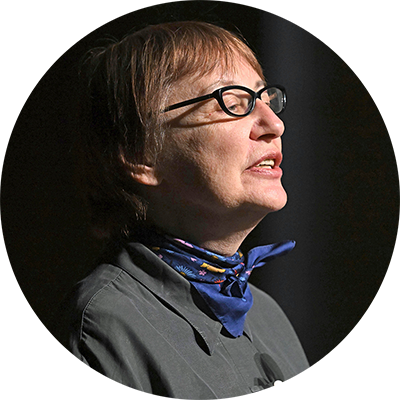 Natalka Bilotserkivets is an award-winning Ukrainian poet. This is the first-ever English language translation of her poem “Kateryna.” Orlowsky and Kinsella co-translated Bilotserkivets’s collection, Eccentric Days of Hope and Sorrow (Lost Horse Press, 2021), which was a finalist for the 2022 Griffin International Poetry Prize, the Derek Walcott Poetry Prize, and the American Literary Translators’ Association National Translation Book Award in Poetry. It was 2022 winner of the American Association for Ukrainian Studies Translation Prize. Bilotserkivets and the translators held a joint reading of the work during Bilotserkivets’s visit to Columbia last winter as part of her Harriman residency in Paris.
Natalka Bilotserkivets is an award-winning Ukrainian poet. This is the first-ever English language translation of her poem “Kateryna.” Orlowsky and Kinsella co-translated Bilotserkivets’s collection, Eccentric Days of Hope and Sorrow (Lost Horse Press, 2021), which was a finalist for the 2022 Griffin International Poetry Prize, the Derek Walcott Poetry Prize, and the American Literary Translators’ Association National Translation Book Award in Poetry. It was 2022 winner of the American Association for Ukrainian Studies Translation Prize. Bilotserkivets and the translators held a joint reading of the work during Bilotserkivets’s visit to Columbia last winter as part of her Harriman residency in Paris.
Featured photo (at the top): Natalka Bilotserkivets during the Harriman’s Art in Time of War event. Photograph by Eileen Barroso.
The works linked below are from the other three of Harriman’s four 2023 Ukrainian residents in Paris, who participated in Art in Time of War and then continued their artistic residencies at Reid Hall, Columbia Global Centers in Paris.
The Second Beginning
By Nikita Grigorov, who is a Ukrainian writer, journalist, and editor selected as the Harriman Institute’s 2022 Paul Klebnikov Fellow. Translated from the Russian by Masha Udensiva-Brenner. Read now >>
To See Beauty Again
By Anna Stavychenko, Ukrainian musicologist, former executive director of the Kyiv Symphony Orchestra, and mission head of the Philharmonie de Paris project that helps Ukrainian musicians exiled in France. Translated by Masha Udensiva-Brenner. Read now >>
The Smell of Mariupol
By Zoya Laktionova, Ukrainian documentary filmmaker. Read now >>

